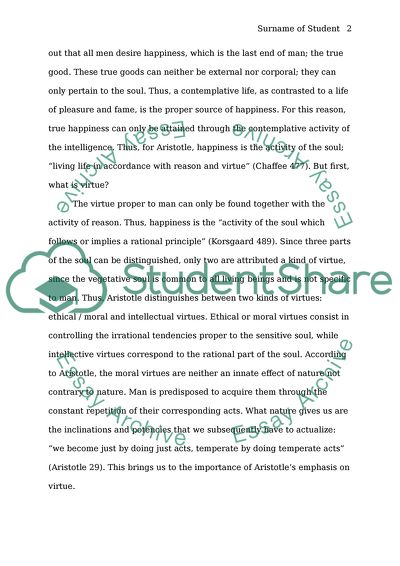Cite this document
(A Comparative Analysis of Aristotle and Kants Ethical Theories Coursework - 1, n.d.)
A Comparative Analysis of Aristotle and Kants Ethical Theories Coursework - 1. Retrieved from https://studentshare.org/philosophy/1576497-compare-and-contrast-the-ethical-theories-of-aristotle-and-immanuel-kant-as-outlined-in-chapter-9-what-are-the-strengths-and-weaknesses-of-each-of-these-positions-which-one-do-you-believe-is-the-most-likely-to-be-correct-why
A Comparative Analysis of Aristotle and Kants Ethical Theories Coursework - 1. Retrieved from https://studentshare.org/philosophy/1576497-compare-and-contrast-the-ethical-theories-of-aristotle-and-immanuel-kant-as-outlined-in-chapter-9-what-are-the-strengths-and-weaknesses-of-each-of-these-positions-which-one-do-you-believe-is-the-most-likely-to-be-correct-why
(A Comparative Analysis of Aristotle and Kants Ethical Theories Coursework - 1)
A Comparative Analysis of Aristotle and Kants Ethical Theories Coursework - 1. https://studentshare.org/philosophy/1576497-compare-and-contrast-the-ethical-theories-of-aristotle-and-immanuel-kant-as-outlined-in-chapter-9-what-are-the-strengths-and-weaknesses-of-each-of-these-positions-which-one-do-you-believe-is-the-most-likely-to-be-correct-why.
A Comparative Analysis of Aristotle and Kants Ethical Theories Coursework - 1. https://studentshare.org/philosophy/1576497-compare-and-contrast-the-ethical-theories-of-aristotle-and-immanuel-kant-as-outlined-in-chapter-9-what-are-the-strengths-and-weaknesses-of-each-of-these-positions-which-one-do-you-believe-is-the-most-likely-to-be-correct-why.
“A Comparative Analysis of Aristotle and Kants Ethical Theories Coursework - 1”, n.d. https://studentshare.org/philosophy/1576497-compare-and-contrast-the-ethical-theories-of-aristotle-and-immanuel-kant-as-outlined-in-chapter-9-what-are-the-strengths-and-weaknesses-of-each-of-these-positions-which-one-do-you-believe-is-the-most-likely-to-be-correct-why.


